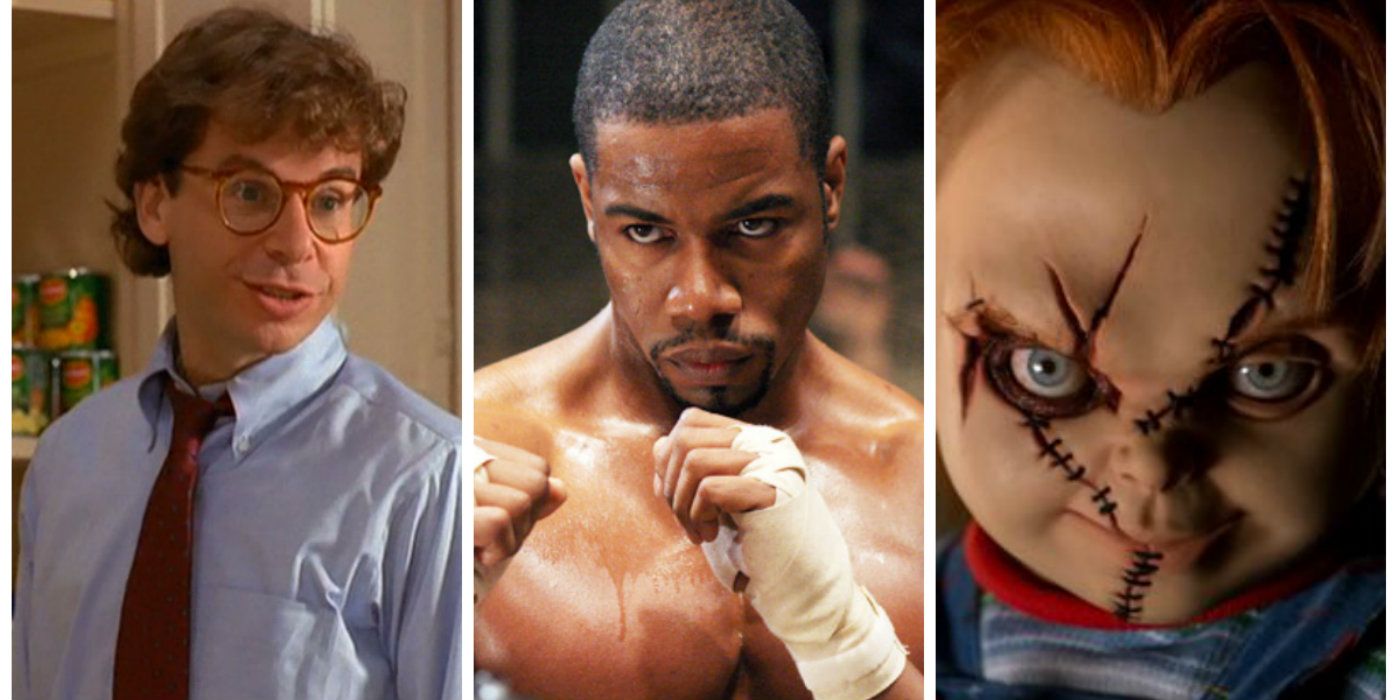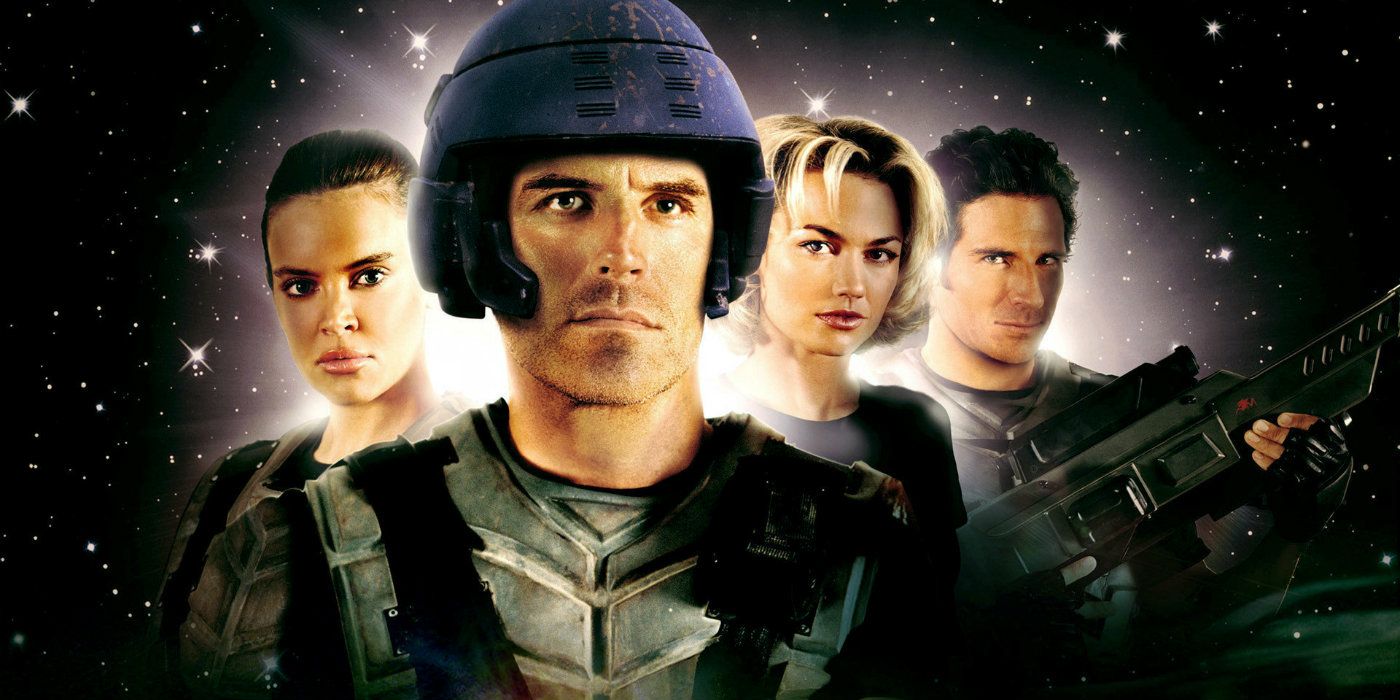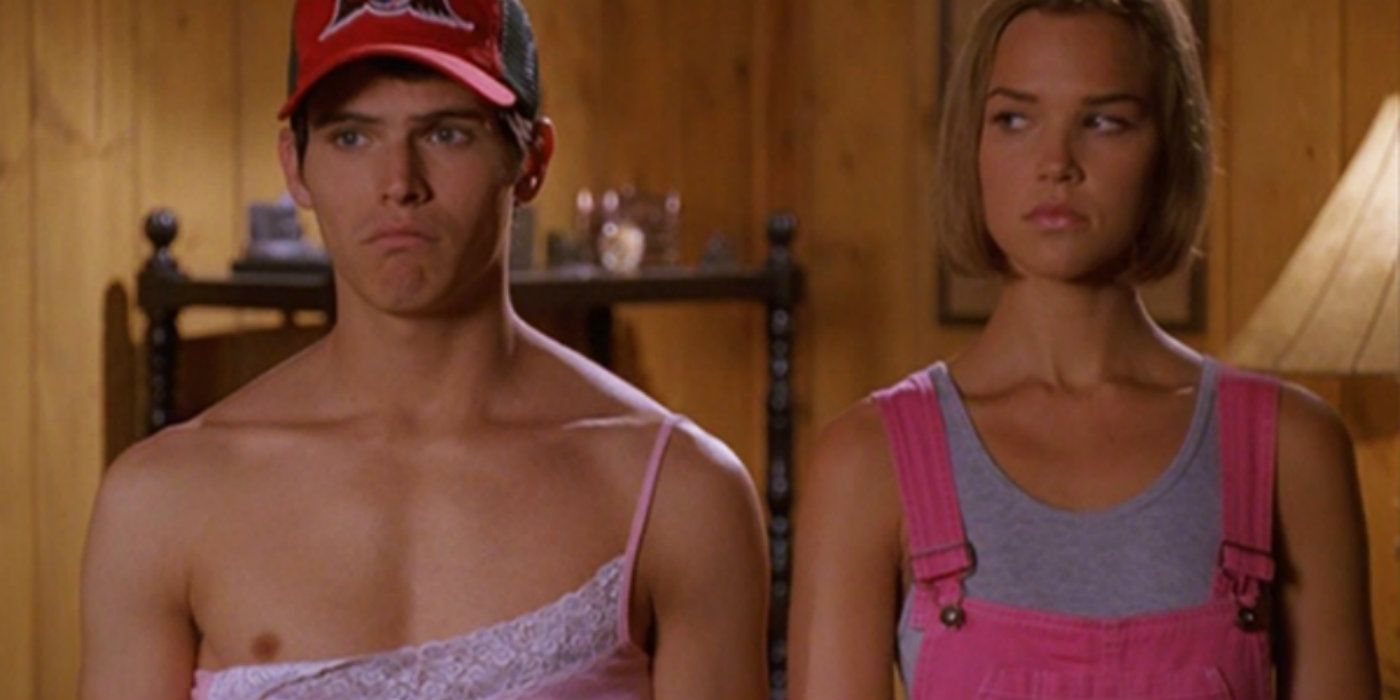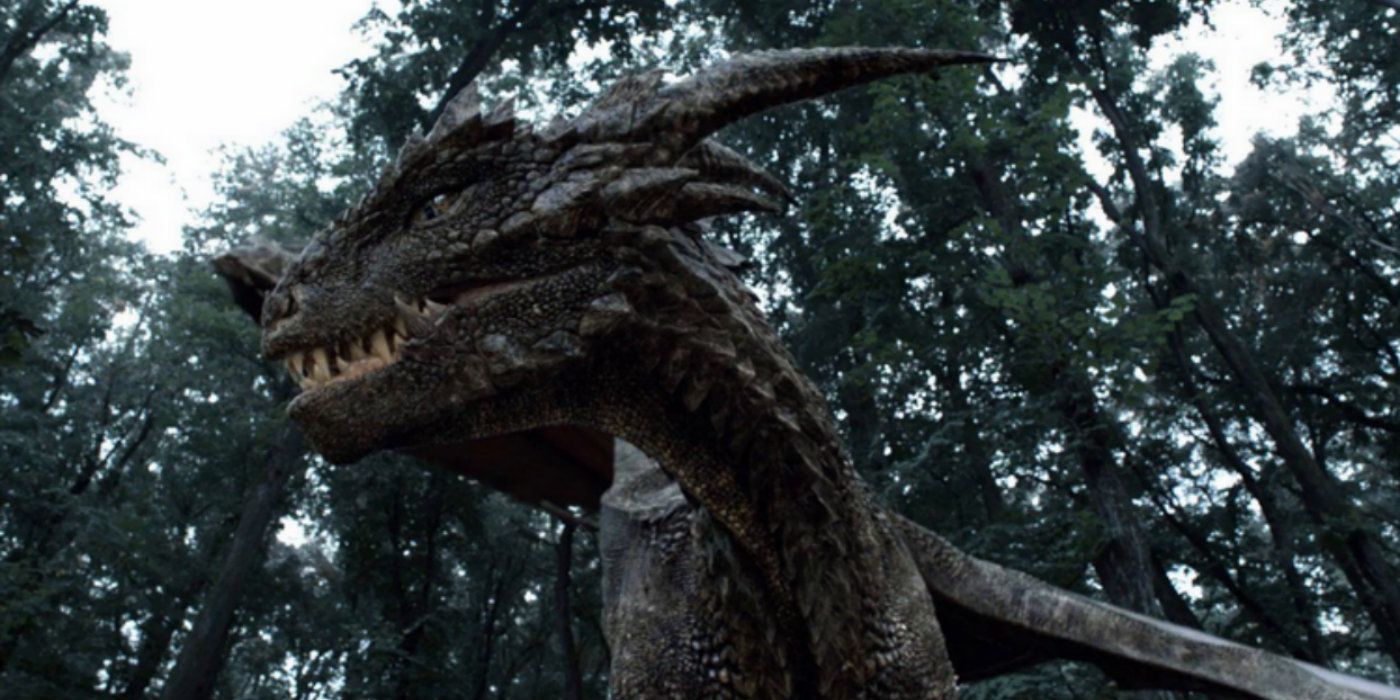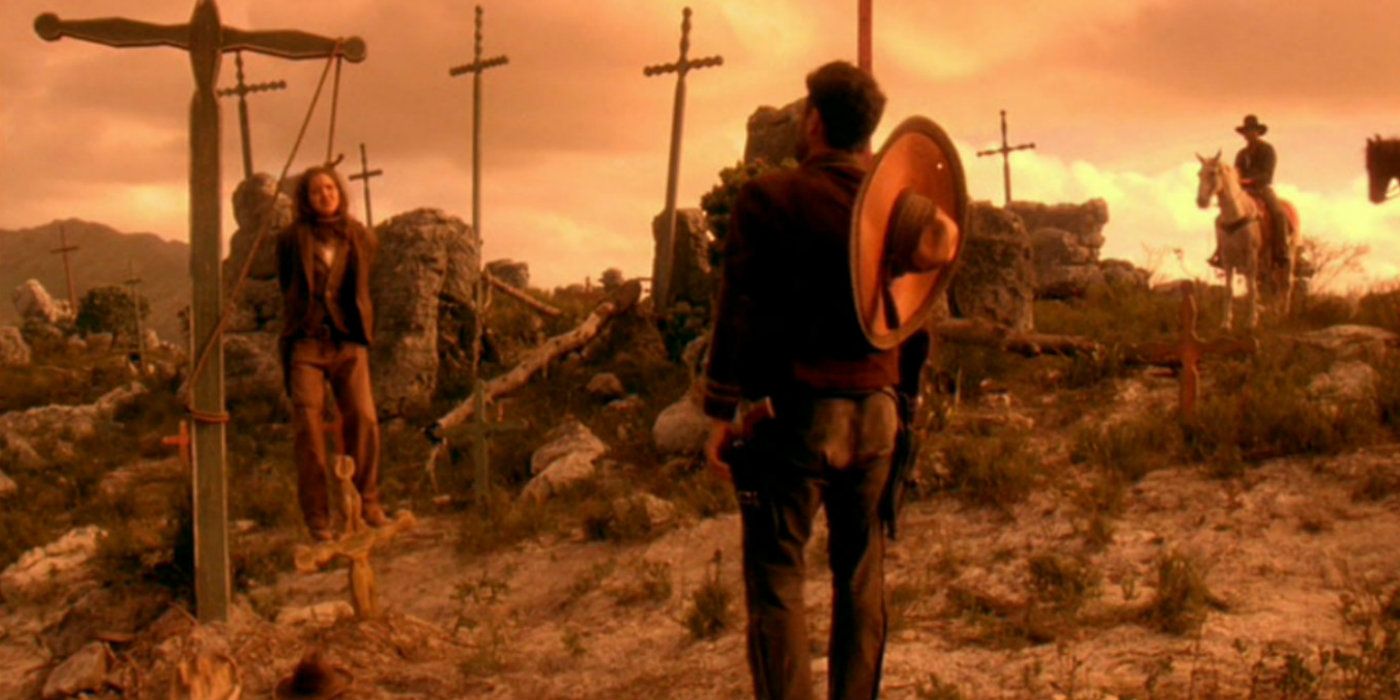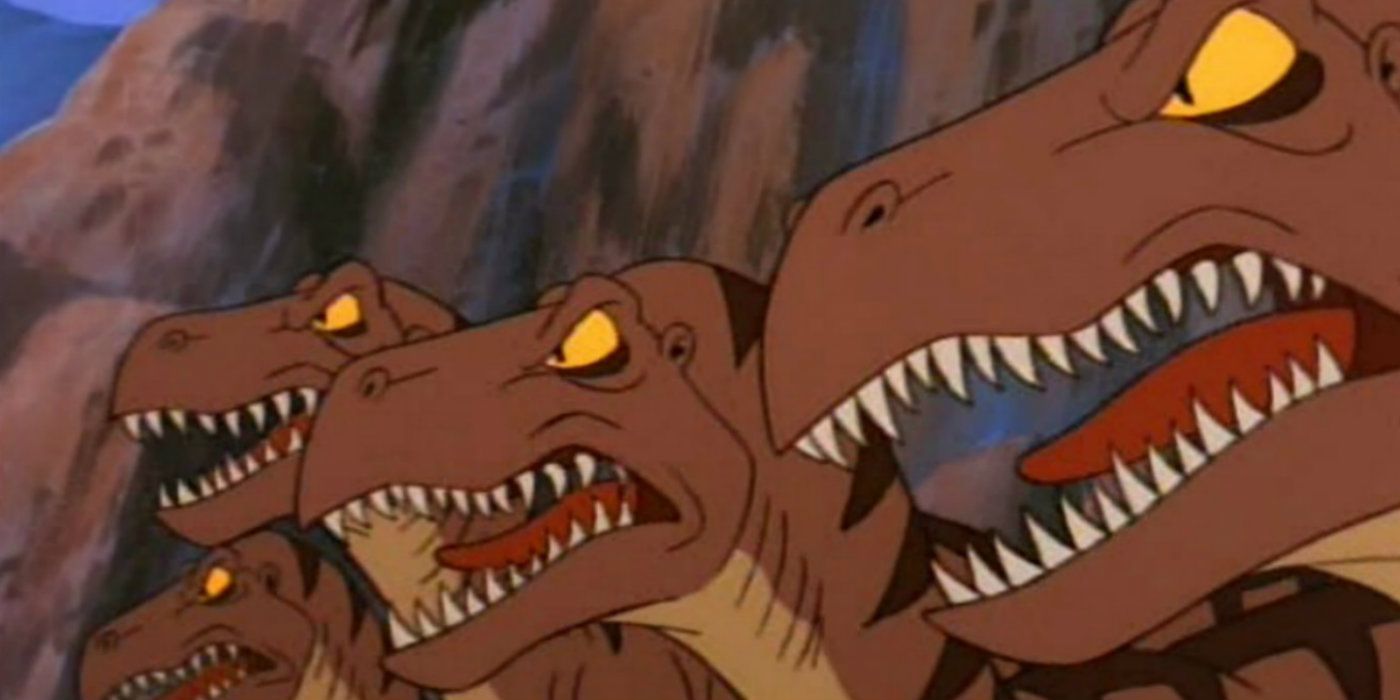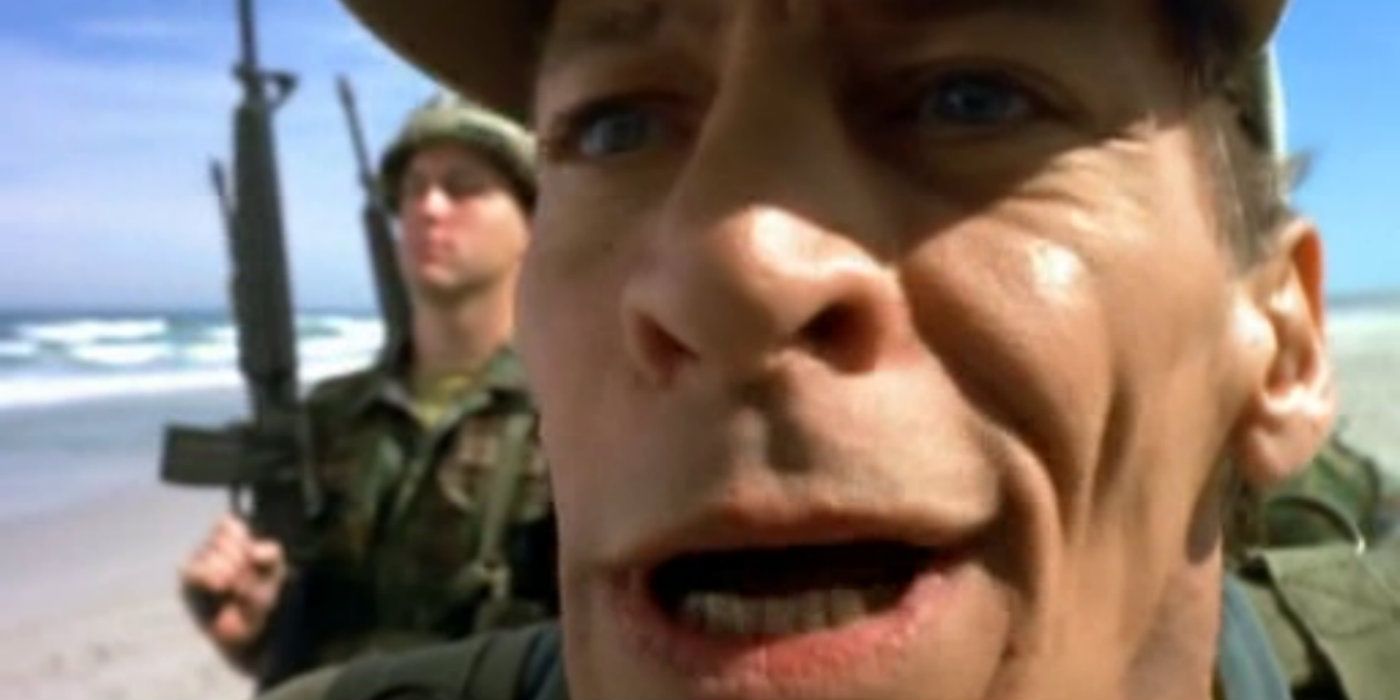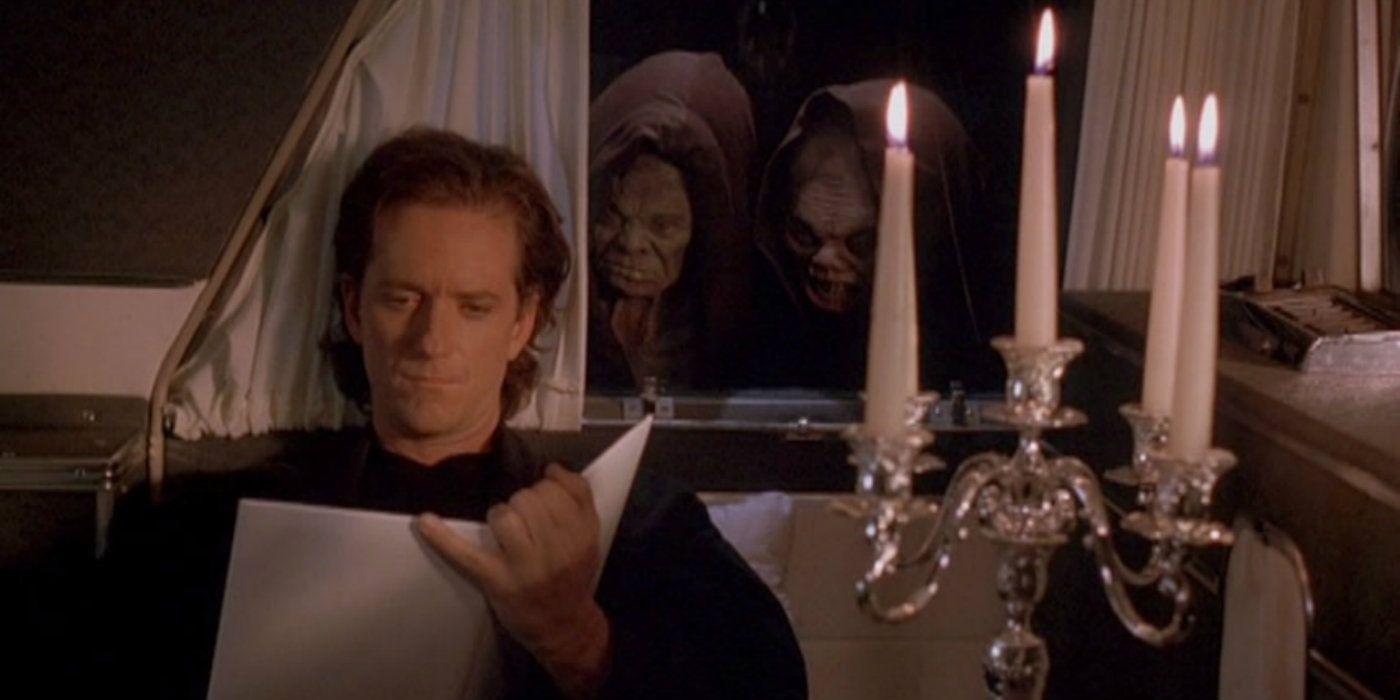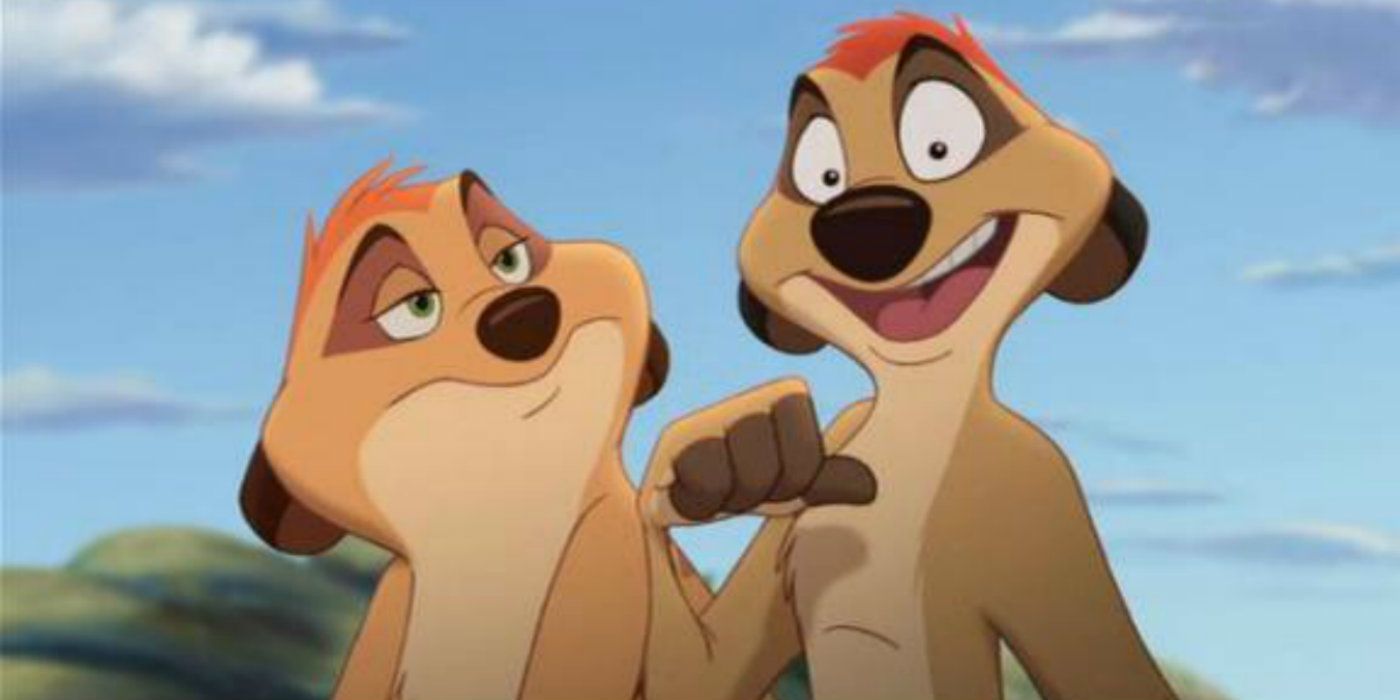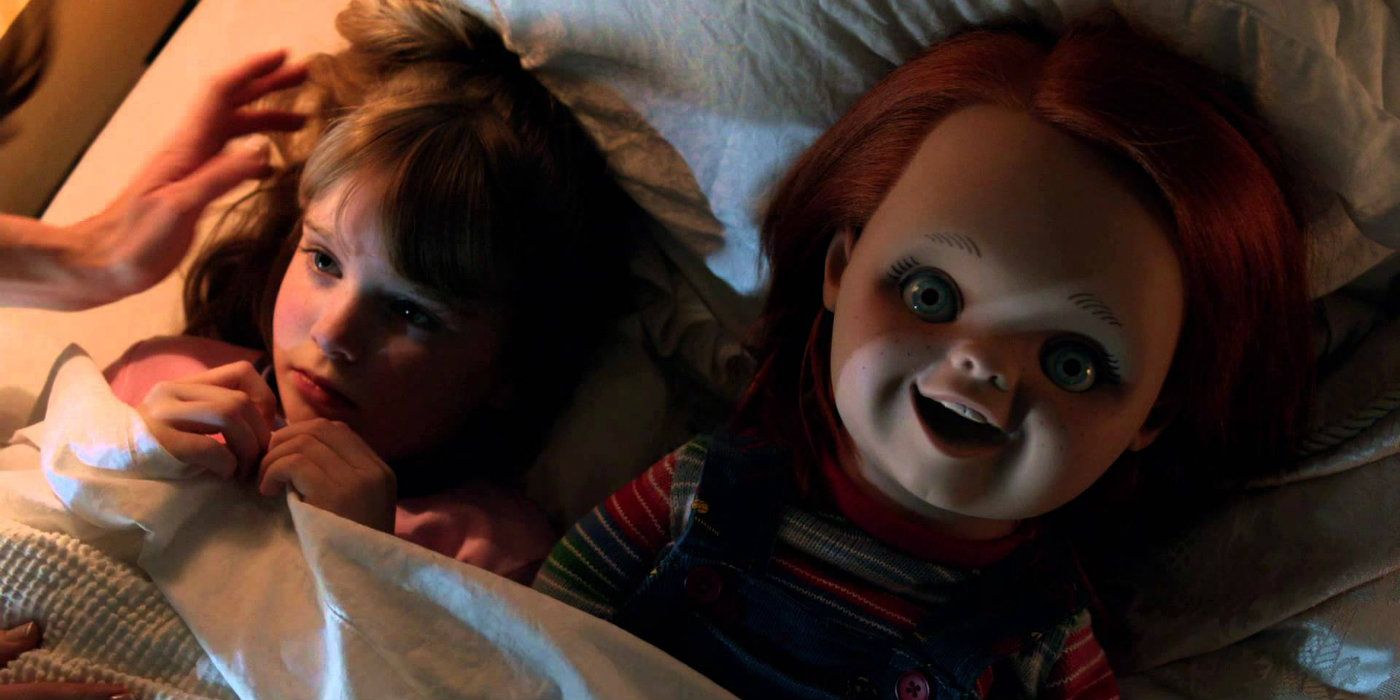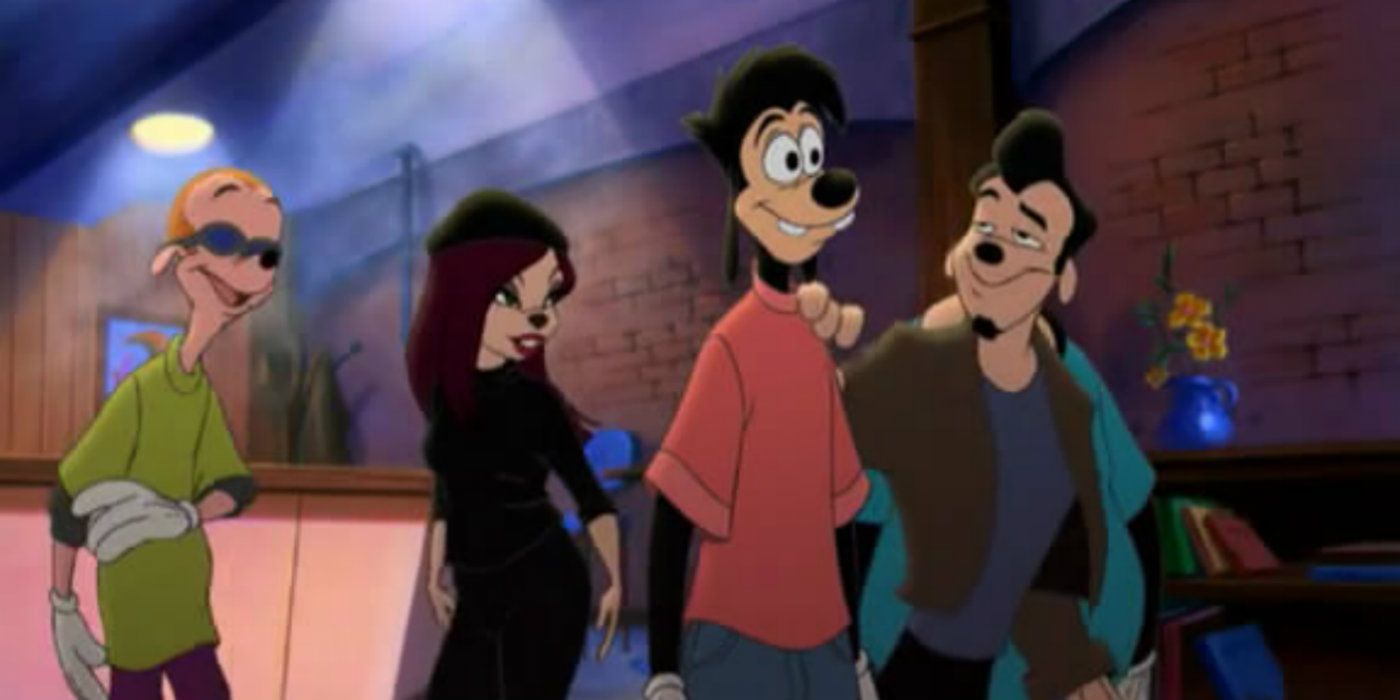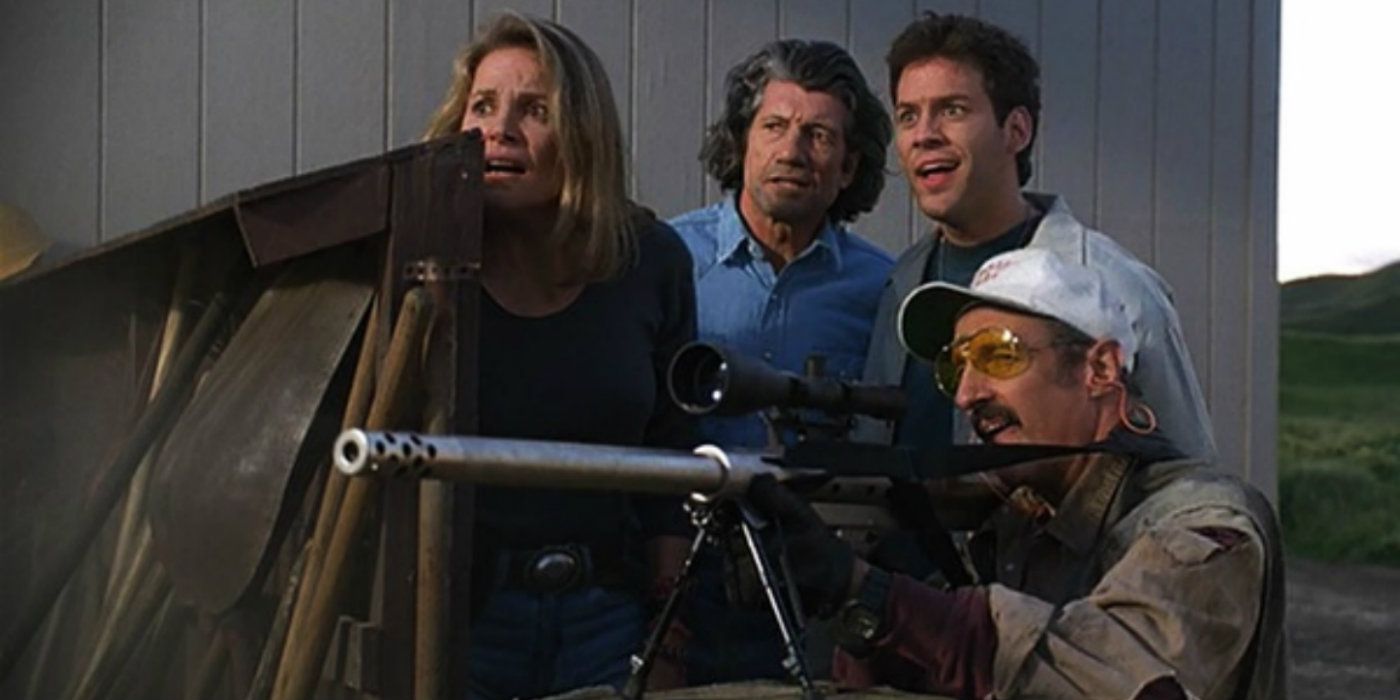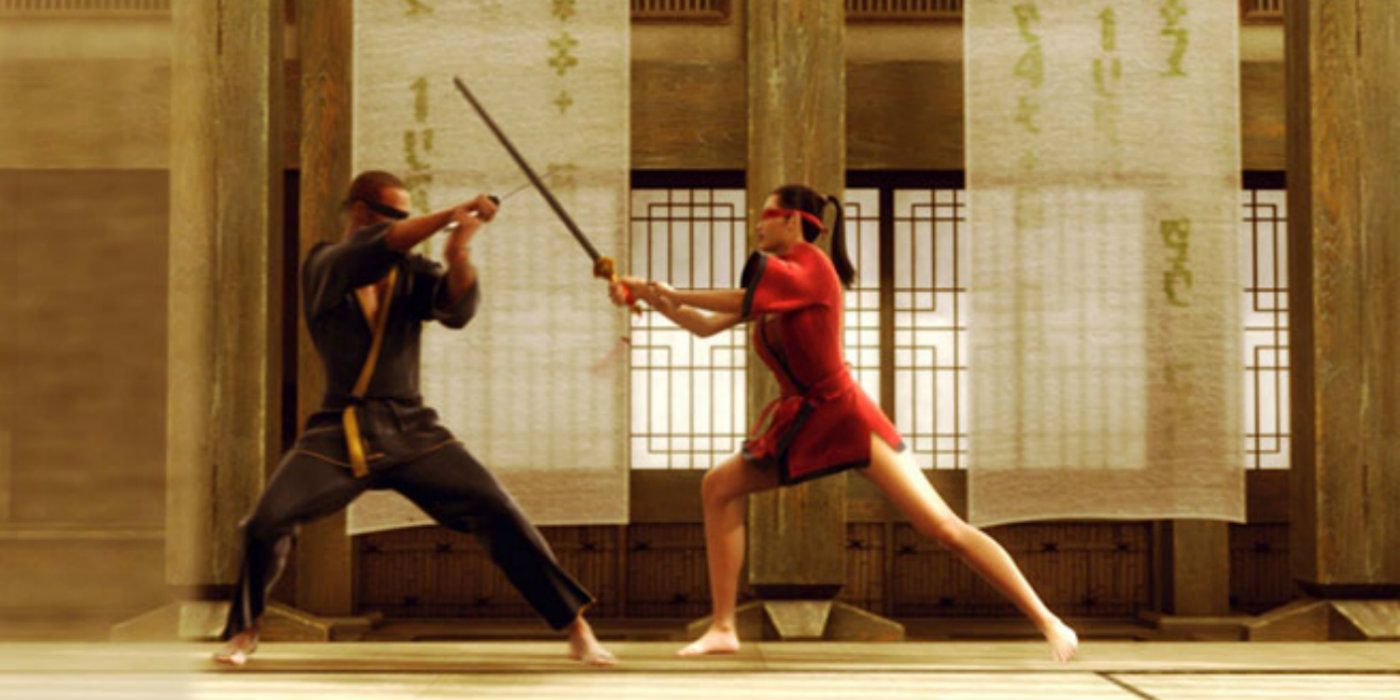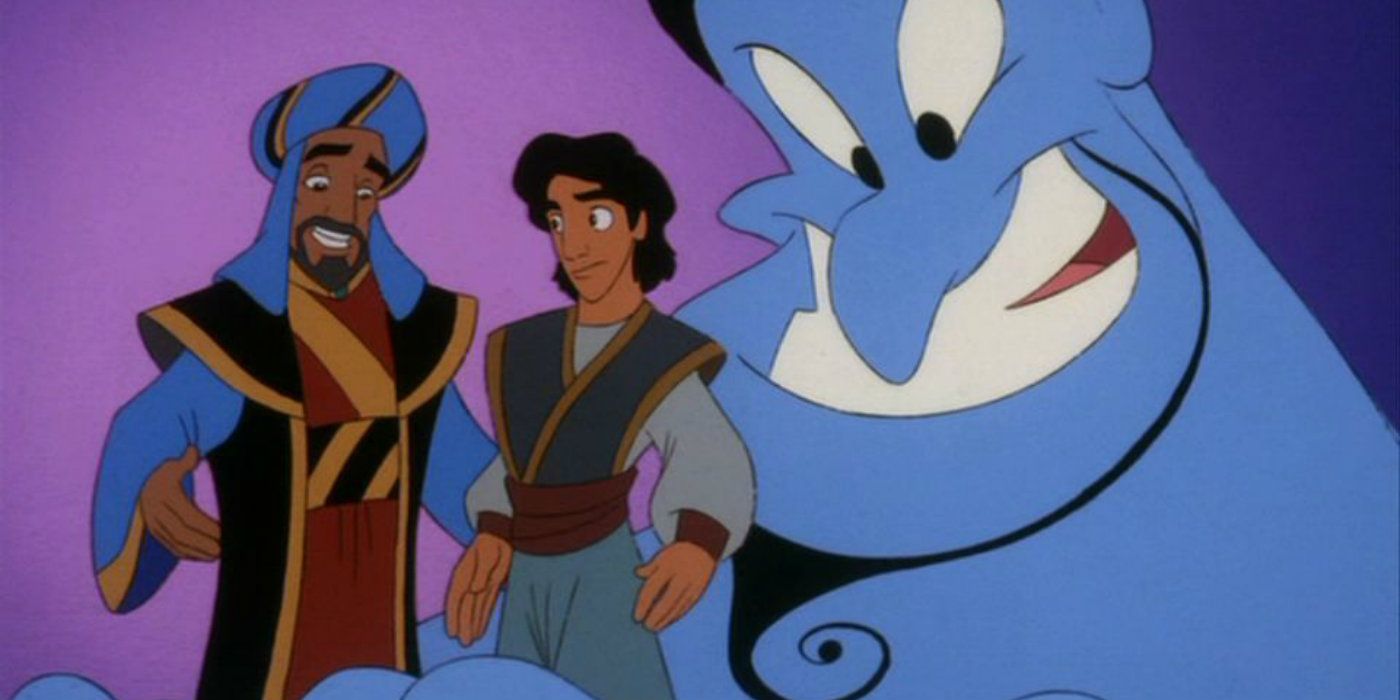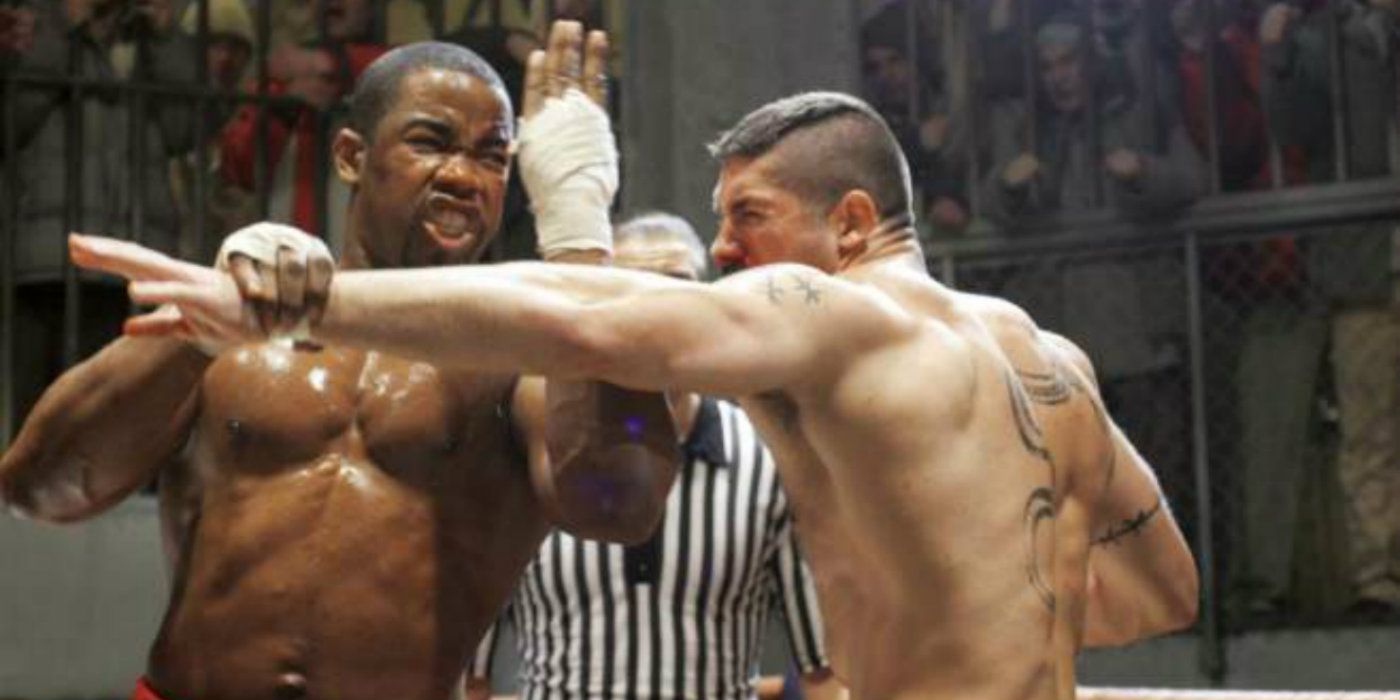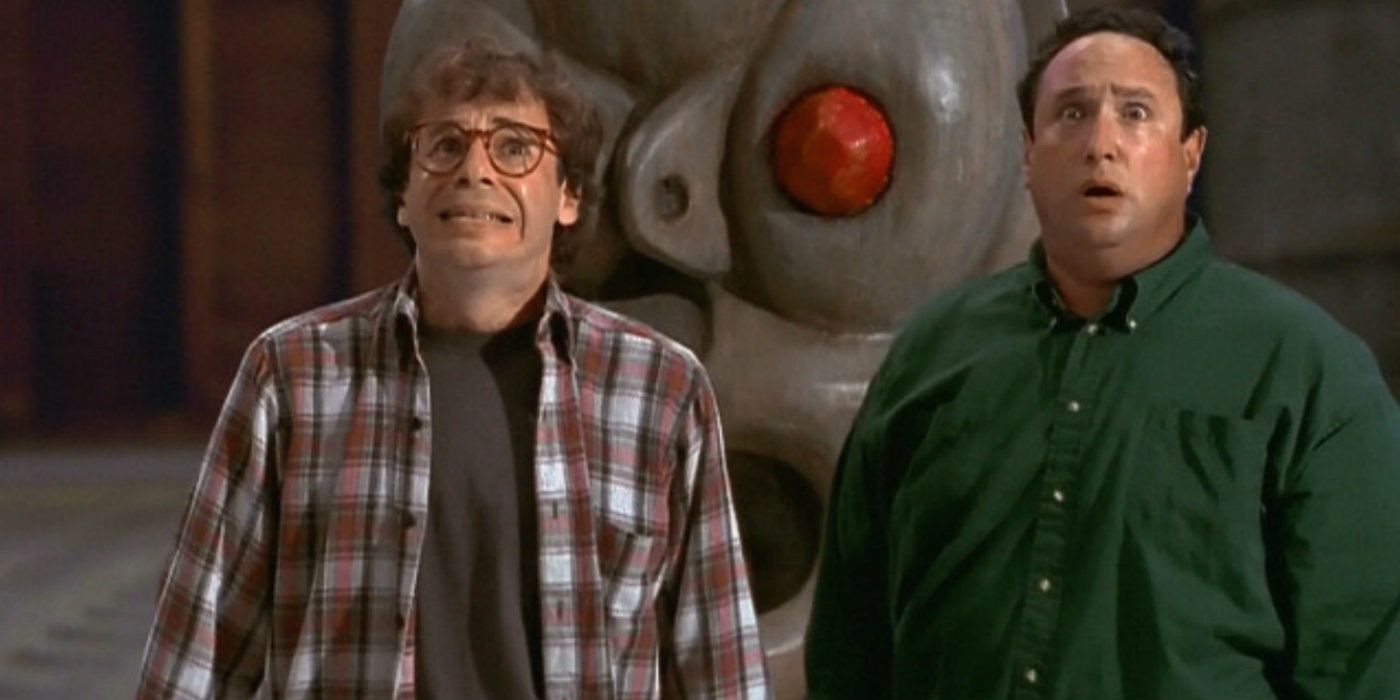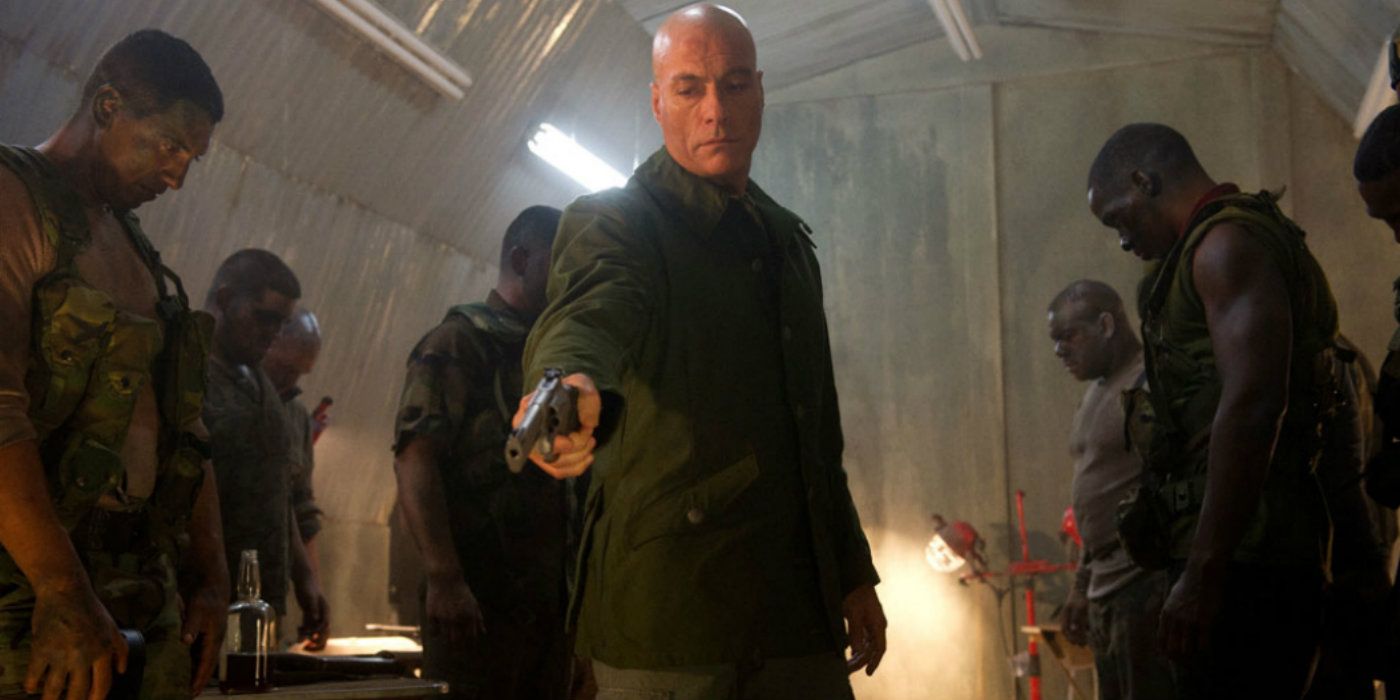These days, there are a lot of high-quality, well-regarded films that skip a theatrical release and go straight to on-demand and/or a streaming service. We don't tend to automatically write off films that make their debut "at home" rather than in a theater anymore. However, there was a time when it was assumed that a movie that didn't make a stop in the theaters first before coming to a home format simply wasn't good enough.
The '90s saw the first major introduction of "direct-to-video" movies, often abbreviated as DTV. The results were all over the map, with the average DTV title definitely lacking in budget and overall quality. Still, there were a few diamonds in the rough, movies that didn't have multi-million dollar budgets or big names attached, but still had plenty of heart. These labors of love were worth checking out for people who could look past the lack of AAA actors and top-notch special effects and just enjoy a flawed but otherwise well-made film.
DTV also became a venue for sequels to major Hollywood releases; movies that weren't huge hits but still developed strong enough followings to justify revisiting. Not surprisingly, DTV sequels didn't have the same budget and also often lost the A-list stars from the previous films, but in some cases, they were still worthy sequels that were enjoyed by fans of the originals.
Here are 16 Direct-to-Video Sequels That Are Actually Great.
16. Starship Troopers 2: Hero of the Federation
Like many Paul Verhoeven films, the director's action/sci-fi movie Starship Troopers was as much a satire of its genre as a legitimate addition to it. Like his Robocop, whose sequels quickly lost the satire and instead dove full-on into being the kind of movies that the original was critiquing, the two DTV Starship Troopers sequels ditched the self-awareness and just gave into being cheesy sci-fi flicks.
That said, it doesn't necessarily make the sequels bad movies-- in fact, Hero of the Federation is quite fun, if you're willing to forgive the loss of the satire and just see it for what it is.
Taking the opposite approach of the Alien movies, Hero is more of the dark horror counterpart to the original Troopers' all-out action flick. The movie goes a little overboard in giving into DTV tropes such as upping the gore factor to absurd levels and having a lot of bare breasts for no particular reason. Still, it's definitely as good as any of the campy SyFy original movies people love so much, and this one doesn't even make you deal with Tara Reid.
15. American Pie Presents: Band Camp
With even the theatrical American Pie sequels largely being forgettable, it's easy to forgive anyone for not giving any of the DTV installments a second thought. In the case of Band Camp, that is a mistake, as it's a surprisingly fun comedy romp that is actually better than a couple of the "real" sequels starring the original cast.
Whereas the other DTV American Pie movies (The Naked Mile and Beta House) seem more like spin-offs with paper-thin ties to the originals, Band Camp is the only one that actually feels like a true follow-up. Starring Steve Stifler's younger brother-- rather than just his cousin as the other DTV films do-- Band Camp also features the return of the great Eugene Levy, as well as Chris Owens' "Sherminator" as a camp counselor. The band camp setting also has a legitimate and familiar tie to the original films, whereas the other two DTV movies just feel like generic college sex comedy premises.
Band Camp doesn't reinvent the wheel, but it gives people what they want out of a movie like this-- gross-out humor to laugh at and naked flesh to ogle for a couple of breezy hours.
14. Dragonheart 3: The Sorcerer's Curse
Much of what made the original Dragonheart so great was that the main dragon was voiced by none other than Sean Connery. Who better to legitimatize a live-action talking dragon movie that isn't aimed directly at kids than Mr. Connery? Unfortunately, Connery didn't return for the first DTV sequel, although that was the least of Dragonheart: A New Beginning's problems-- the movie just wasn't able to recapture the magic of the original.
Against all odds, the third Dragonheart movie managed to turn things around and actually come fairly close to the quality of the first film. Smartly going the prequel route this time, The Sorcerer's Curse had some pretty impressive computer dragon effects for a DTV movie, and managed to get Ben Kingsley to take over voice acting duties for the same dragon that Connery played in the original.
Even with some stiff competition in the dragon-based fantasy genre from the likes of Game of Thrones, A Sorcerer's Curse is still a highly enjoyable adventure for fans of medieval swords-and-dragons fare.
The newest DTV installment to the Dragonheart franchise, Battle for the Heartfire, was just released on June 13th.
13. From Dusk Till Dawn 3: The Hangman's Daughter
Robert Rodriguez prides himself on giving his movies a deliberate grindhouse/B-movie vibe and just a general "homemade" feel overall. His theatrical releases already look and feel like DTV movies, an observation that Rodriguez would probably take as a compliment. More of his franchises would've probably been taken over by others for a string of DTV sequels--Spy Kids especially--had Rodriguez not just done those sequels himself.
The only movie he directed that he gave up the reigns to for a transition to DTV franchise is From Dusk Till Dawn. Maybe it's the fact that it wasn't entirely conceived by Rodriguez-- Robert Kurtzman wrote the story, and Quentin Tarantino did the screenplay-- and so he feels a bit less "ownership" of it.
The first DTV Dawn sequel went just a little too far in the low-budget direction, missing the point that there still had to be some charm behind the campiness. Rodriguez stepped back in to at least come up with the story for the third movie, and his re-involvement is evident as it gets much closer to the vibe and fun of the original and does the franchise proud after a shameful sequel.
12. The Land Before Time III: The Land of the Great Giving
It's become something of a punchline how many Land Before Time movies there are. By last count, the series is at something like 200 installments-- give or take a few dozen-- with only the original having been a theatrical release. But movie companies don't typically crank out sequels to franchise that nobody cares about, so the TLBT series must do well enough to justify its ongoing proliferation.
The original definitely remains the best of the bunch, which isn't a surprise given that it was created and produced by the dream team of Don Bluth, Steven Spielberg, George Lucas, and Frank Marshall. Most of the sequels are perfectly fine kids' movies, even though the musical numbers first introduced in the fifth installment marked the transition to a very different vibe from the early films.
The original movie was quite dark, and didn't mind getting uncomfortable and scary in a way that gave kids enough credit to be able to handle it. That's exactly what makes the third installment so good; maintaining that cutesy/scary balance very well and also introducing raptors that are nightmare fuel on the level of anything Spielberg ever put into his own dinosaur movies.
11. Ernest in the Army
Jim Varney probably never imagined that his Ernest P. Worrell character would go from being a regional commercial pitchman, hocking everything from Mellow Yellow soda to locally-syndicated Andy Griffith reruns, to starring in a Disney-produced feature film. He was probably even more surprised that the movie did well enough at the box office to continue that partnership with Disney for three more theatrically-released films.
Of course, Ernest's time at the top couldn't last forever. After a fifth theatrical movie was self-released by Varney and longtime creative partner John Cherry, the remaining four Ernest movies were all DTV, and the quality had definitely begun to flag at that point. It's not so much that the movies got bad, just that they had given in to being much sillier and more slapsticky, becoming the clichés that the countless Ernest references and parodies had suggested.
The main exception is the final film, Ernest in the Army, which did the best of the DTV installments at toning done some of the buffoonery and regaining the wit of the early Ernest movies. Thank goodness the series didn't end on the cringy Ernest Goes to Africa-- which, yes, is a racially-insensitive as you'd think.
10. Phantasm IV: Oblivion
DTV has long been a haven for horror movie sequels-- and entire horror franchises, period. What horror movies have going for them that most other film genres don't is that fans often don't mind if they are "bad," and in fact, sometimes prefer them that way.
The first Phantasm movie wasn't a box office hit, but it nonetheless developed a strong enough cult following for a theatrical sequel nearly a decade later. Unfortunately, that movie did little right in the eyes of fans, and the franchise again went dormant for six more years before being resurrected with a DTV sequel. Both Lord of the Dead and the next film, Oblivion, were able to recapture much of the campy magic of the original and make up for the disappointing Phantasm II.
Oblivion gets the slight edge between the two because it had to make do with a much smaller budget than Lord of the Dead, and that's exactly what makes it so great. The filmmakers having to get creative with how to stretch a shoestring budget mirrored the development of the first movie, and as a result, the two films share that charming low-budget horror movie feel that many fans prefer.
9. The Lion King 1 1/2
With Disney working on the theatrical sequel to Frozen and Cars just becoming Pixar's second trilogy, it's easy to forget that the company used to only follow up their animated films in DTV form. In fact, they weren't even all that discriminating which movies they made sequels to-- even a C-list Disney movie The Emperor's New Groove got its own dedicated DTV sequel in 2005.
While there was always a noticeable downgrade in animation quality when a Disney franchise went DTV, overall they were still top-notch productions and many were legitimately great movies on their own. The inventive Lion King 1 1/2 is one such movie, not going the obvious sequel route by taking place after the events of the original--as Lion King II: Simba's Pride would later do. Instead, 1 1/2 tells a concurrent story, largely happening alongside the events of The Lion King but more from Timon and Pumba's point of view.
Nathan Lane and Ernie Sabella both reprised their roles as the BFF pair, and their chemistry was still perfect and they remained as funny and charming as ever.
8. Curse of Chucky
The Child's Play/Chucky series has always been all over the map quality-wise, but it might be a surprise to some that one of its best installments is the first to be a DTV release. In fact, 2013's Curse of Chucky has the highest Rotten Tomatoes score out of any of the movies in the franchise by a pretty considerable margin at a very respectable 81%-- the original, which is the second-highest scorer, only has 69%.
Astonishingly, all six movies in the nearly 30-year old franchise have been written by the same guy, Don Mancini, and he began directing them as well with the two most recent installments.
After the franchise lost its way with Seed of Chucky-- which took a strange hip-hop-flavored detour-- Mancini made good with Curse. He took things back to basics in an installment that returned to the series' slasher film roots and got away from the constant ante-upping that had began to plague the series.
While Curse of Chucky still kept the franchise's signature dark humor intact, it also returned to the more horror-focused roots of the original rather than the increasingly comedic tone of the subsequent sequels.
7. An Extremely Goofy Movie
Serving as something of a sequel to the TV series Goof Troop, the original A Goofy Movie was a surprisingly funny flick that was definitely a bit more low-key than the typical big Disney movie-- but was actually one of the better films from the company during its mid-90s slump.
As with many movies based on animated series, it felt more like an extended episode than a proper movie, and as such it tended to drag at times. But it was still a fun coming-of-age comedy starring Goofy and his son, Max. It even managed to make a character played by Pauly Shore and based on his "Weasel" character tolerable.
In a lot of ways, its DTV sequel was actually a better movie. Max was now a freshman in college, and as such, the movie's story and vibe was a bit more mature and sophisticated than the silly romp about a '90s teen of the original. Goofy is also given a bit more to do in than is typical, being more of a genuine co-star to Max rather than just his bumbling father who is always messing things up for him.
6. Tremors II: Aftershocks
Tremors is one of those franchises that has existed for so long in DTV form that it doesn't seem like it was ever in theaters. Indeed, the series has definitely taken on a life of its own following its theatrically debut starring Kevin Bacon. Even from the start, the movies knew exactly what they were and what they were trying to be, but it wasn't really until the second movie that the Tremors that most fans are familiar with was truly born.
Aftershocks may not have brought straight-man Kevin Bacon back, but who needs him when you have Fred Ward and Michael Gross on board? The actors are clearly having a blast here, chewing up the scenery even more than the titular monsters.
The characters take just as much glee in killing the creatures as we do watching them, and surprisingly little is lost in terms of quality in the transition to a lower-budget medium. In fact, this is the rare DTV horror movie sequel that could've easily hit theaters and nobody would've questioned it.
5. The Animatrix
While few people question the legacy of the first Matrix movie, its sequels have largely been looked at as disappointments at best, and complete disasters at worst. Perhaps the only Matrix-related media beyond the original movie that still deserves acclaim is also the least-known: the DTV compilation collectively called The Animatrix.
The most notable piece of the collection of animated shorts is Final Flight of the Osiris, which has the distinction of being the only other thing besides Final Fantasy: The Spirits Within to be created by the short-lived Square Pictures. The CG short tells the tragic tale of the fate of a ship that was directly referenced in The Matrix movies. The rest of the collection is various other animated short films that show different people reacting to the reality of the matrix, both inside and out, in a variety of interesting ways.
Among the top-tier talent that came together for the ambitious project are Peter Chung (Aeon Flux), Kōji Morimoto (Akira), Shinchirō Watanabe (Cowboy Bebop), Mahiro Maeda (Kill Bill's anime sequence), and Yoshiaki Kawajir (Ninja Scroll). It was a brilliant, unique way to flesh out an overly complex universe that three movies couldn't quite reign in.
4. Aladdin and the King of Thieves
The first DTV Aladdin sequel was decent, but suffered from three major issues-- Robin Williams didn't return to voice Genie, the plot was boringly just another battle against Jafar, and its 69-minute running time made it feel more like a TV special than an actual movie. The third installment in the series, Aladdin and the King of Thieves, wasn't much longer at 81 minutes, but it at least brought Robin Williams back and had a more interesting plot.
The movie tells the store of the fabled Forty Thieves, and it is discovered that-- spoiler alert--their leader is Aladdin's estranged father. The concept was far more creative than Return of Jafar, and it feels like a unique adventure rather than just a lazy victory lap. While the extremely talented Dan Castellaneta (The Simpsons) did an admirable job subbing in as Genie in the second film, Robin Williams simply is Genie, and his triumphant return to the role was a treat.
3. Undisputed II: Last Man Standing
One interesting thing that happens with some DTV sequels is that they take a largely forgettable theatrical action film and turn it into a dynamite DTV franchise. 2002's Undisputed was a pretty mediocre boxing moving starring Wesley Snipes that was followed up by the excellent Undisputed II, starring the criminally underrated Michael Jai White.
White definitely deserves to be a much more well-known star than he is, but DTV fans get to have him as one of their best-kept secrets. As a martial artist and physical specimen, he is absolutely the real deal-- there is a reason he was picked to play Mike Tyson in an HBO biopic. White was simply born in the wrong era, and had he been around in the late '80s to early '90s heyday of Hollywood's love affair with action stars like Jean-Claude Van Dame and Steven Seagal, he would've been one of the biggest stars around.
Undisputed II is easily one of the best action movies of the last ten years, DTV or otherwise. If you only know Michael Jai White as Spawn or in bit parts in movies like The Dark Knight, check out Undisputed II to see what he's truly capable of.
2. Honey, We Shrunk Ourselves
With comedy legend Rick Moranis basically giving up acting for the last two decades save for the occasional cartoon voicework, we have to milk every ounce of pleasure that we can out of his existing body of work. As it stands, his return to the role of Wayne Szalinski in the third Honey, We... movie-- and the first that was DTV-- is his final live-action acting appearance. For that reason alone, Honey, We Shrunk Ourselves deserves to be cherished.
Fortunately, it's also a solid movie on its own merits. Redeeming the franchise after the disappointing Honey, We Blew Up the Kid, the third movie in the series smartly goes back to the miniature-humans-in-an-oversized-world conceit that made the original so great-- and the sequel so boring. Swapping things out by having the adults get shrunk this time instead of the kids was a clever move, and even though we now know that Moranis was reaching the tail end of his love of acting at this point, he still delights in his third appearance as kooky inventor Szalinski.
At least he got out before the soon-to-follow TV show sapped all the novelty out of the concept.
1. Universal Soldier: Day of Reckoning
The surprisingly prolific Universal Soldier franchise has hit all the major avenues a movie can hit, having two theatrical movies, two made-for-TV movies, and two DTV movies. The original was one of action superstar Jean-Claude Van Damme's career-defining roles, and his appearance in the theatrical sequel-- co-starring with Michael Jai White, coincidentally-- would be one of the last major Hollywood productions he'd star in until his role in The Expendables 2.
Interestingly, in the franchise's DTV revival, the filmmakers decided to retcon the theatrical sequel out and pick up from where the original movie left off. Van Damme and co-star Dolph Lungren returned for both movies, which quickly became high-water marks for what DTV movies-- sequels or otherwise-- could be.
Both Regeneration and Day of Reckoning are excellent action/sci-fi films that aren't just love-letters to similar movies from the 90s-- they deserve mention alongside the best genre movies from that decade. Day of Reckoning is just a hair better overall, but either movie could've easily taken this top stop on the list.
(Full disclosure: Day of Reckoning got a very limited theatrical release in the U.S. on just three screens, but is still generally considered a DTV movie.)
---
What's your favorite DTV sequel? Let us know in the comments!

